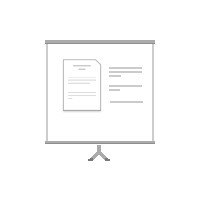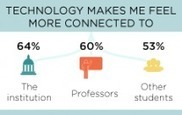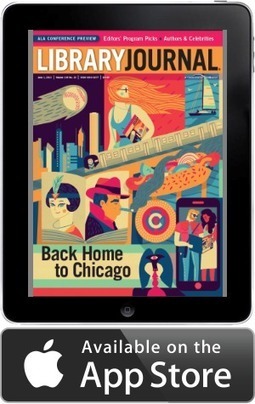This theoretical paper attempts to clarify design issues that the field of education has encountered in the context of OER (Open Educational Resources), Massive Open Online Courses (MOOCs) and increased emphasis on informal learning, as examined through the lens of the Interaction Equivalency Theorem. An overview of the core concepts of the Interaction Equivalency Theorem (the EQuiv) is provided and an explanation of how the EQuiv framework can be used to analyze interaction designs for online and distance education. The paper applies EQuiv ideas to categorize three variants of MOOCs (xMOOCs, sMOOCs and cMOOCs), from the perspective of interaction design so as to elucidate the major design differences. In conclusion, this paper explores the changing role of formal education in an era of learning opportunity where online educational resources and opportunities are readily accessible and in many cases completely free of cost to the learner.
Get Started for FREE
Sign up with Facebook Sign up with X
I don't have a Facebook or a X account

 Your new post is loading... Your new post is loading...
 Your new post is loading... Your new post is loading...
Current selected tag: 'report'. Clear
FutureofHigherEd.org • _________________________
The “Promises” of Online Higher Education: Profits With so much national focus on the “promises” of online higher education to expand access and to reduce costs, one truth about online higher education rarely mentioned is that it is big—Very Big—business. Understanding and assessing developments in online higher education require that we look at them not just through the lens of industry slogans—“innovation,” “expanded access,” and “reduced costs,” but also through the lens of corporate interest and influence.
[snip]
Report at: http://futureofhighered.org/promises-online-higher-education-profits/
"Current evidence indicates that the use of technology during teaching and learning activities is steadily increasing (Berrett, Murphy, & Sullivan, 2012; Inan & Lowther, 2010; National Education Association, 2008), yet achieving ‘...
Exploring new forms of teaching, learning and assessment, to guide
This second report updates proposes ten innovations that are already in currency but have not yet had a profound influence on education. You can see a summary of each innovation at the menu on the right. Please contribute with comments on the report and the innovations.
With discussions taking place around the College and University about the merits and technicalities of providing students with recorded materials, the timing couldn’t have been better for this workshop.
Hosted by Loughborough University with keynotes and sessions from leading users and supporters of lecture capture technology, the event was a good introduction to what experienced users are doing with he established technology, and how these enhancements are being vowed and used by students. We also need to be careful we do not ignore the ‘other’ questions that need asking: it’s not only about the students and pedagogic use of the technology, it’s also about how it’s implemented. We need to be sure to address the resources and resourcing, the implementation, the strategy surrounding its installation and use, the pedagogy, the support, etc. It is not about how we use it, it’s about how well we use it. - See more at: http://www.dontwasteyourtime.co.uk/conferences/lecture-capture-pedagogy-policy-and-support-lborolc13/#sthash.tNoDcW7C.rStl7xDo.dpufWe also need to be careful we do not ignore the ‘other’ questions that need asking: it’s not only about the students and pedagogic use of the technology, it’s also about how it’s implemented. We need to be sure to address the resources and resourcing, the implementation, the strategy surrounding its installation and use, the pedagogy, the support, etc. It is not about how we use it, it’s about how well we use it. - See more at: http://www.dontwasteyourtime.co.uk/conferences/lecture-capture-pedagogy-policy-and-support-lborolc13/#sthash.tNoDcW7C.rStl7xDo.dpufWe also need to be careful we do not ignore the ‘other’ questions that need asking: it’s not only about the students and pedagogic use of the technology, it’s also about how it’s implemented. We need to be sure to address the resources and resourcing, the implementation, the strategy surrounding its installation and use, the pedagogy, the support, etc. It is not about how we use it, it’s about how well we use it. - See more at: http://www.dontwasteyourtime.co.uk/conferences/lecture-capture-pedagogy-policy-and-support-lborolc13/#sthash.tNoDcW7C.rStl7xDo.dpufWe also need to be careful we do not ignore the ‘other’ questions that need asking: it’s not only about the students and pedagogic use of the technology, it’s also about how it’s implemented. We need to be sure to address the resources and resourcing, the implementation, the strategy surrounding its installation and use, the pedagogy, the support, etc. It is not about how we use it, it’s about how well we use it. - See more at: http://www.dontwasteyourtime.co.uk/conferences/lecture-capture-pedagogy-policy-and-support-lborolc13/#sthash.tNoDcW7C.rStl7xDo.dpuf
Elizabeth E Charles's insight:
We also need to be careful we do not ignore the ‘other’ questions that need asking: it’s not only about the students and pedagogic use of the technology, it’s also about how it’s implemented. We need to be sure to address the resources and resourcing, the implementation, the strategy surrounding its installation and use, the pedagogy, the support, etc. It is not about how we use it, it’s about how well we use it. - See more at: http://www.dontwasteyourtime.co.uk/conferences/lecture-capture-pedagogy-policy-and-support-lborolc13/#sthash.tNoDcW7C.rStl7xDo.dpuf
|
Key Findings See the 2013 report for a full list of key messages, findings, and supporting data. Students recognize the value of technology but still need guidance when it comes to better using it for academics. Students prefer blended learning environments while beginning to experiment with MOOCs. Students are ready to use their mobile devices more for academics, and they look to institutions and instructors for opportunities and encouragement to do so. Students value their privacy, and using technology to connect with them has its limits.
The 2013 report was released earlier today by ECAR (EDUCAUSE Center for Analysis and Research). ECAR has been releasing this report annually since 2004. Direct to Full Text Report (49 pages; PDF)
Direct to Infographic (PDF)
From the Report’s Web Page:
In 2013, ECAR collaborated with more than 250 higher education institutions to collect responses from more than 112,000 undergraduate students about their technology experiences and expectations. The findings are distilled into four broad themes to help educators and higher education institutions better understand how students experience technology on their respective campuses and the ways in which new, better, or more technology can impact students’ relationship with information technology.
Exploring new forms of teaching, learning and assessment, to guide
The latest piece of research by CLT on Embedding Digital and Information Literacy in Undergraduate Teaching compared strategies being used by three projects that are part of the JISC Developing Dig...
@Ignatia Webs: Free #OER trend report with #MOOC and innovative learning foci http://t.co/ncRw2Wq5a8 |













